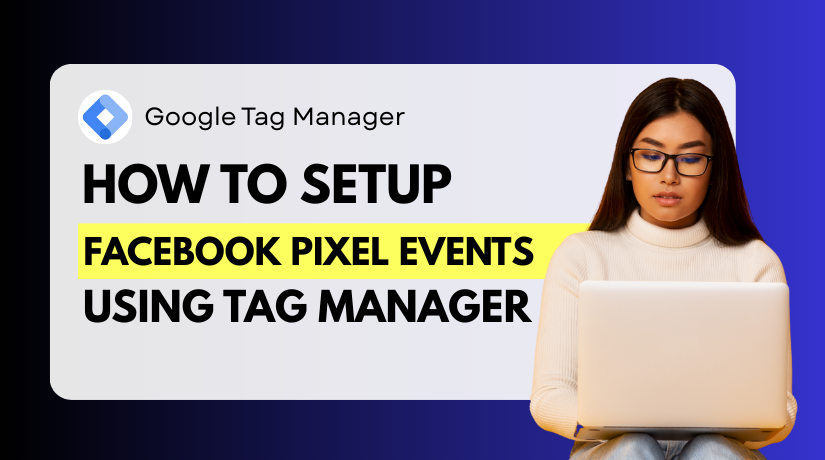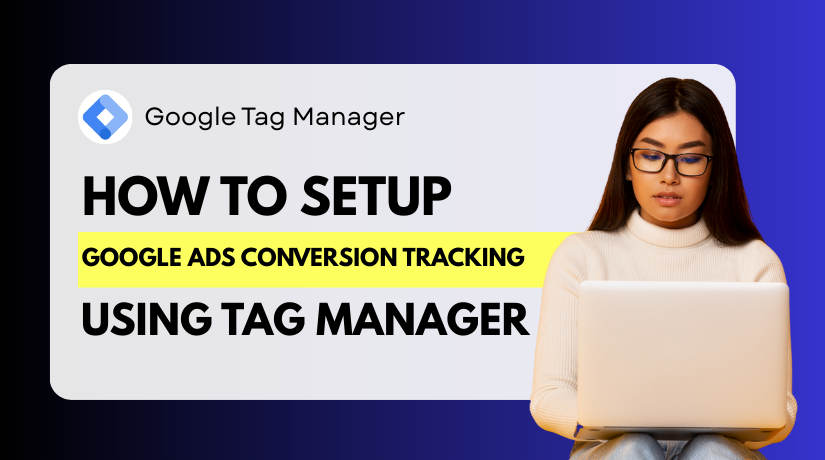
Is ChatGPT Content Safe to Publish on a Website? A Complete Guide for Website Owners
Table of Contents
- Introduction
- Is ChatGPT Content Safe to Publish on a Website?
- ChatGPT SEO: Can AI-Generated Content Improve Your Website’s Ranking?
- Google’s AI Content Policy and What it Means for Website Owners
- How to Ensure Your ChatGPT Website Content Is Safe for Publication
- Conclusion
Introduction
Content creation has been transformed by the emergence of artificial intelligence (AI) tools such as ChatGPT. Owners of websites can now produce vast amounts of information rapidly and effectively. However, there’s growing concern about whether AI-generated content is safe to publish on a website. A lot of website owners are unclear about how ChatGPT material affects quality, SEO, and even legality. This guide aims to address these concerns and help website owners understand the benefits and potential pitfalls of using ChatGPT for website content.
AI-Generated Content and Its Use
ChatGPT is capable of producing a wide range of material, including articles, blog entries, product descriptions, and customer service replies. With just a prompt, it produces readable and coherent text. For website owners, particularly those that require large volumes of information, this can save time and resources.
Concerns About AI Content
Despite its benefits, many wonder: Is ChatGPT content safe to publish on a website? Some common concerns include the risk of plagiarism, lack of originality, and whether AI-generated content will align with Google’s search algorithms. Furthermore, many worry about AI content failing to engage readers effectively.
This guide will explore whether ChatGPT content is safe to publish on a website. By the end, website owners will have a better understanding of how to use ChatGPT content effectively while adhering to best practices.
What is ChatGPT Content?
ChatGPT is a sophisticated AI language model developed by OpenAI. Based on the inputs it receives, it employs deep learning to produce text that appears human. As a result, it can produce content that resembles what a human writer might create. ChatGPT is designed to understand context and provide relevant, coherent responses.
Definition of ChatGPT Content
ChatGPT content refers to any text generated by this AI model. This can range from simple answers to complex articles. The AI creates a response based on patterns it has discovered from a massive quantity of data once prompts or inquiries are entered. The output can be fine-tuned to match specific tones, styles, and even formats.
How ChatGPT Generates Content
ChatGPT utilizes a technique known as “transformer-based deep learning” to anticipate the next word in a sentence. A vast collection of online text was used to train it. This enables it to provide content that is both contextually relevant and coherent. But ChatGPT is not able to “think” like a human. It draws on existing knowledge to generate its responses, so it’s important for website owners to review and ensure accuracy.
Relevance to Website Owners
ChatGPT is an effective tool for website owners looking to produce content quickly and at scale. It can be applied to a number of tasks, including:
- Blog Posts: Generate articles on any topic, with a focus on SEO.
- Product Descriptions: Write e-commerce websites with captivating product descriptions.
- Customer Support Responses: Provide automated yet personalized responses for customer inquiries.
- FAQs: Create question and answer sections for websites.
ChatGPT provides website owners with an effective tool for creating content. When incorporating it into your content strategy, it’s crucial to comprehend both its advantages and disadvantages, just like with any other product.
Is ChatGPT Content Safe to Publish on a Website?
As ChatGPT becomes more popular, many website owners are asking: Is ChatGPT content safe to publish? Although AI-generated content provides notable advantages, it also presents risks and challenges that must be managed. Website owners must ensure that the content they publish is accurate, safe, and consistent with their objectives. Let’s explore the main concerns surrounding the safety of ChatGPT content.
Overview of Content Safety Concerns
AI-generated content, like that from ChatGPT, is often seen as an easy solution for website owners. However, some common concerns arise around its safety. These concerns include:
- Plagiarism: Content is produced by AI models, such as ChatGPT, using data that has been trained on it. There is a risk that the content could closely resemble existing work.
- Quality Issues: ChatGPT may produce content that lacks depth or specific details. It might also struggle to provide context or human-like understanding, leading to shallow content.
- Relevance and Accuracy: Sometimes, ChatGPT might produce content that’s irrelevant or factually incorrect.
Accuracy of Information
One of the most significant concerns about ChatGPT content is accuracy. The AI model uses vast amounts of internet data to generate responses. This information might not always be correct or up to date, though. For example, ChatGPT may provide outdated statistics or incorrect information about a topic. Prior to publication, every information must be fact-checked and verified. You should cross-reference the generated content with trusted sources to ensure reliability.
Originality and Plagiarism Risks
The possibility that content produced by AI will be unoriginal is another problem. Since ChatGPT is trained on a large dataset, it can sometimes produce content that is too similar to existing material. Although the AI aspires to creativity, it is unable to produce completely original content from scratch. Website owners should use plagiarism-checking software on the created content to prevent plagiarism. This will help guarantee that the content is truly original and won’t cause search engine penalties.
Guidelines for Ensuring Safe Content
To ensure that ChatGPT content is safe to publish, follow these simple guidelines:
- Edit for Quality: Always review and improve AI-generated content. Ensure it meets your website’s standards and is free from errors.
- Fact-Check Information: Double-check any data or facts provided in the content. To gain your audience’s trust, accuracy is essential.
- Run Plagiarism Checks: Use plagiarism detection tools to verify the content is original.
- Customize for Your Brand: To ensure that the material reflects the voice and values of your brand, add personal touches.
You can make sure that ChatGPT material for your website is accurate, safe, and of a high-quality by following these procedures.
ChatGPT SEO: Can AI-Generated Content Improve Your Website’s Ranking?
As a website owner, one of the main goals of content creation is to improve your search engine rankings. With ChatGPT, the question arises: Can AI-generated content boost your SEO efforts? The quick response is “yes,” but with some crucial disclaimers. AI-generated content can help with SEO if used properly, but there are specific factors to consider. Let’s examine how ChatGPT may affect the SEO and Google ranking of your website.
ChatGPT and SEO
ChatGPT can assist with SEO in several ways. It can generate content that’s optimized for keywords, helping your site rank better for specific terms. Here are some ways that ChatGPT can help with SEO:
- Keyword Integration: ChatGPT can incorporate keywords naturally into the content. This facilitates target keyword ranking.
- Meta Descriptions: ChatGPT can produce meta descriptions that are optimized for search engines and contain relevant keywords.
- Content Structure: ChatGPT can help organize content with clear headings, subheadings, and bullet points, which improves readability and SEO.
- Internal Linking: To improve how well search engines index your pages, you can utilize ChatGPT to generate or recommend internal links inside your content.
Does AI Content Impact Google Rankings?
Google has a clear position on content produced by AI. AI content, including that from ChatGPT, can rank well on Google. It must, however, adhere to the same guidelines as content created by humans. Google does not penalize AI content unless it’s low quality or spammy. Making sure the material is unique and delivers value for the reader is crucial for ranking. Google rewards content that answers the user’s query and provides a good experience.
To rank well, AI-generated content must:
- Be relevant and informative.
- Be high-quality and error-free.
- Avoid using too many keywords at once, as this can lower your ranking.
How to Use ChatGPT SEO
To maximize ChatGPT’s impact on your SEO, follow these tips:
- Use Long-Tail Keywords: Pay attention to long-tail keywords that are less competitive and more specialized.
- Focus on User Intent: Make sure the material speaks to the intent of the searcher. Content that directly addresses queries or resolves issues can be produced with the use of ChatGPT.
- Ensure Readability: Google values content that’s easy to read. Make sure your ChatGPT content is well-structured and user-friendly.
- Optimize for Featured Snippets: Use ChatGPT to create content that’s concise and formatted for featured snippets (e.g., lists, bullet points, or Q&A sections).
Limitations of ChatGPT for SEO
While ChatGPT can be a powerful tool for SEO, it has its limitations:
- Lack of Depth: AI content may lack the depth and unique insight that human writers provide. For high-ranking content, depth is important.
- Lack of Originality: AI-generated content might not always provide fresh ideas or perspectives.
- Overuse of Templates: If ChatGPT content follows a rigid template, it can become repetitive and less engaging for readers.
To sum up, ChatGPT can help with SEO, but it’s important to make sure the content is unique, of good quality, and in line with user intent. It is most effective when used in conjunction with human input to guarantee that the content provides value and satisfies Google’s ranking requirements.
Google’s AI Content Policy and What it Means for Website Owners
As AI-generated content becomes more common, it’s important for website owners to understand Google’s stance on this type of content. Google has clear guidelines about how AI content fits into their ranking system. Website owners need to know how Google treats AI-generated content and how to stay compliant with its rules. Let’s break down Google’s AI content policy and its implications for website owners.
Overview of Google’s AI Content Policy
Websites that use AI-generated content are not penalized by Google, as the company has made clear. The key factor in ranking is the quality of the content, not whether it’s written by a human or an AI. Providing users with original, valuable, and high-quality content is Google’s top priority. As long as the content meets these standards, it can rank well in search results, regardless of whether it’s generated by AI.
However, Google has strict guidelines against content that is created purely for search engine manipulation. This includes content that is:
- Spammy: Content created solely to rank in search engines without adding value to users.
- Low-Quality: Content that lacks depth or is poorly written.
- Duplicative: Content that is not original and closely resembles existing content across the web.
Google’s algorithm looks for content that aligns with user intent. If the AI-generated content answers the user’s query in a meaningful way, it can perform well in search results.
How Google Views AI Content and Ranking
Google’s approach to AI content focuses on the quality of the material. Content produced by AI can score highly if it
- Provides real value to the reader.
- Is original and not plagiarized.
- Is clear, well-structured, and readable.
- Meets the needs of search intent (i.e., answers questions or solves problems).
AI-generated content can rank highly if it’s written with these standards in mind. Google uses sophisticated algorithms to assess content quality and relevance. If the content meets these requirements, it can be indexed and ranked, regardless of whether it was created by a human or AI.
Avoiding AI Content Pitfalls
While AI content can help improve SEO, website owners need to be cautious about certain pitfalls. Here’s how to avoid falling into trouble with Google’s AI content guidelines:
- Ensure Quality: AI-generated content should always be edited and improved. Ensure that it is comprehensive, insightful, and error-free.
- Avoid Keyword Stuffing: Don’t over-optimize content with excessive keywords. It can be seen as spammy.
- Add Human Touch: Combine AI content with human insights to improve depth and engagement.
- Be Transparent: If at all feasible, state that the content was created using AI. Transparency can help build trust.
How to Ensure Your ChatGPT Website Content Is Safe for Publication
Time and effort can be saved while creating content with ChatGPT. However, to ensure that the generated content is safe to publish, website owners need to take extra steps to verify its quality. AI-generated content needs to be reviewed for various factors, including accuracy, originality, and readability. In this section, we will explore how to ensure that your ChatGPT website content is safe for publication.
Quality Control Measures
Even though ChatGPT generates content quickly, it still needs careful review before publishing. Here are a few steps you can follow to maintain the quality of AI-generated content:
- Check for Grammar and Spelling: ChatGPT can produce content with minor errors, so always run it through a grammar-checking tool.
- Fact-Check Information: Since ChatGPT might not always have up-to-date knowledge, verify any facts, statistics, or claims made in the content. Cross-check the information with trusted sources.
- Ensure Depth and Detail: AI content can sometimes be too shallow. Review the content to make sure it addresses the topic comprehensively and adds value for the reader.
Editing Tips
Once you’ve reviewed the content for errors and accuracy, it’s time to edit it. The following editing advice will improve the quality of content produced by ChatGPT:
- Refine the Tone: Make sure the tone matches your brand voice. ChatGPT often provides a neutral tone, but you may need to add personality or a specific style to make it more engaging.
- Personalize the Content: AI-generated material might seem more genuine by adding a human touch. Use examples, anecdotes, or unique insights that ChatGPT can’t provide.
- Structure and Formatting: For readability, arrange the information into distinct paragraphs, headings, and bullet points. This helps readers navigate the content more easily.
Combining AI Content with Human Expertise
Even if ChatGPT is an excellent tool, human skills should still be combined with its output. The originality, emotional intelligence, and distinct viewpoint that people provide are absent from AI material. Here’s how to combine AI content with human expertise:
- Add Unique Insights: After generating content with ChatGPT, enhance it with your personal knowledge and experience. This gives the content a more human touch.
- Provide Expert Opinions: If applicable, add insights from industry experts or quotes from credible sources to add authority to the content.
- Provide Context: AI content might not fully capture the nuances of a subject. Use human judgment to provide additional context or depth where needed.
Website owners can make sure that ChatGPT content is safe to publish by following these steps. Through quality control, thoughtful editing, and combining AI-generated text with human insights, you can create content that is valuable, accurate, and aligned with your brand’s goals.
Conclusion
For website owners who want to produce content quickly, ChatGPT can be a very useful tool. However, to ensure the content is safe to publish, it’s essential to carefully review and refine AI-generated text. By following quality control measures such as grammar checks, fact-checking, and ensuring depth, you can maintain high-quality content. Additionally, adding your unique insights and aligning the content with your brand’s voice helps enhance its relevance and authenticity.
While Google’s AI content policy allows AI-generated material to rank, the content must meet the same standards as human-written material: originality, accuracy, and value. Combining ChatGPT’s speed with human expertise ensures that the content is not only safe but also valuable for your audience. With proper editing and attention to detail, ChatGPT can be a safe and effective tool for boosting your website’s content strategy and SEO efforts. For more support on managing your website’s content, visit WooHelpDesk.com.




